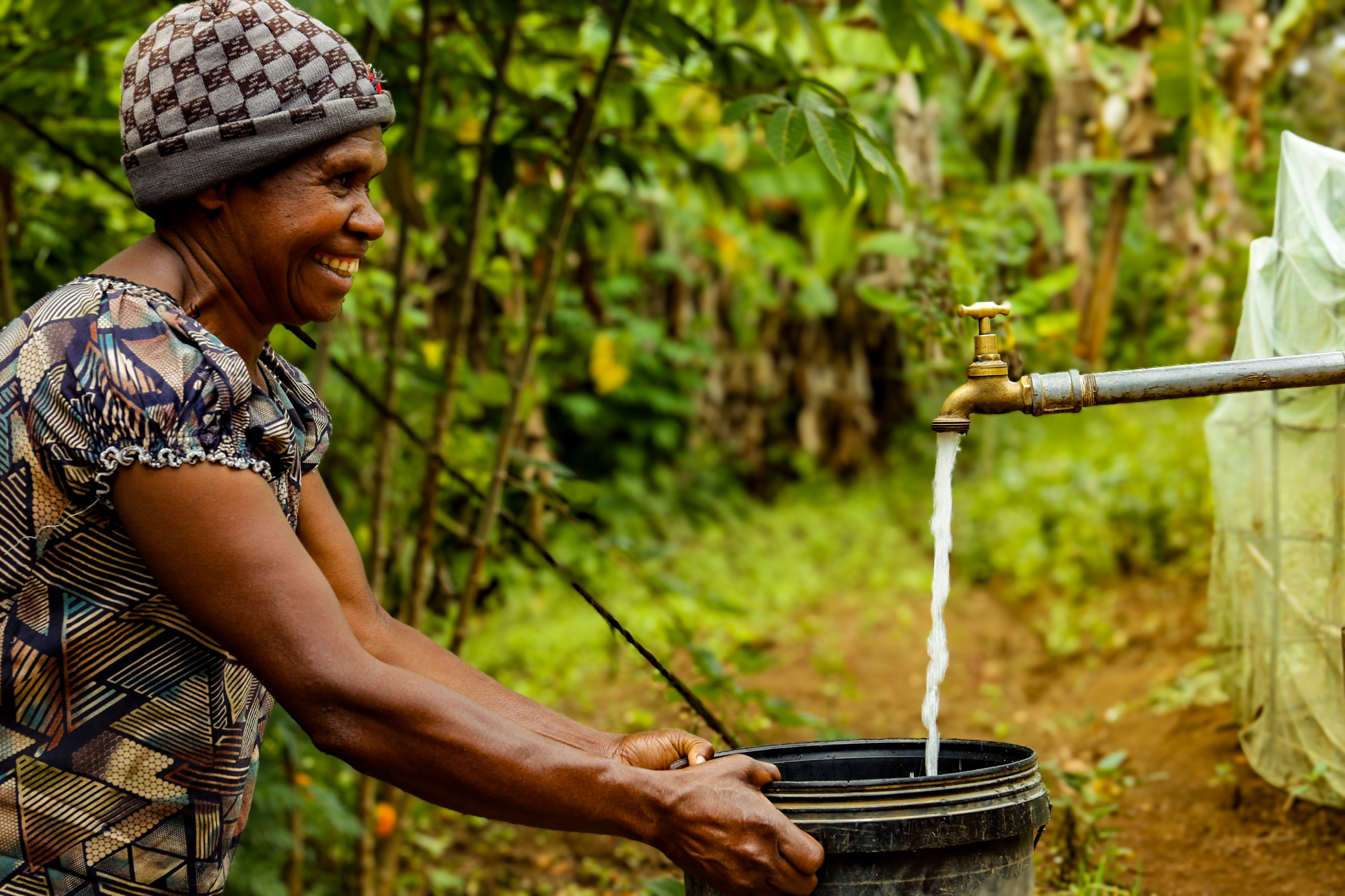Lavin’s Story
“Mi Lavin, mi blo Lufah”
Lavin sits on a patch of grass in the centre of Nogorunte - the community she now calls home.
But she proudly introduces herself as being from Lufah – another community not too far off from where we are.
Marrying into Nogorunte about 24 years ago, she and her husband have 5 kids and while he goes off to the market every day to sell produce, she stays back – looking after their home, their children and a garden that she’s extremely proud of. Later she shows us this garden, and it is impressive. She’s even built a mini greenhouse, tending to her plants with equal amounts care and passion. It’s clear she’s invested a lot of time into it.
She then walks over to the tap right next to her garden and in front of her modest home. One twist and water comes gushing out. The pressure is impressive.
She recounts how much has changed, pointing out a stream of water too far off for us to see. Before Oxfam’s work in bringing clean water to the doorsteps of families in Nogorunte, they would have to travel hours to the nearest water source – streams like the one that Lavin points out, to collect freshwater. Lavin estimates they would spend about 2 to 3 hours each day doing that.
“Now,” she says. “We just walk outside our house, and we can get a cup of water to drink.”
This change is particularly significant for women like Lavin because like many other communities in the Pacific, tasks like fetching water are often assigned to women and girls. It is not difficult to imagine that this is drawn from the idea that the water will be used for cooking, washing and cleaning – all of which have historically been subsumed into the non-exhaustive list of gender roles ascribed to women and girls.
Emerging studies by Oxfam in the Pacific show that in Pacific countries like Fiji, these “care” roles are disproportionately appropriated to women and girls, many of whom are involved in their own different sets of work in addition to this. The result is too few hours in a day for the average woman – certainly not enough to finish her work, let alone get enough rest.
In communities like Nogorunte, Lavin’s story mirrors that of women in rural and maritime communities in Fiji. With so much of her time dedicated to collecting fresh water, women like Lavin struggle to find the time to complete the rest of their care work, as well as additional sets of work they are involved in.
Consequently, Lavin would often have to ration her tasks through different days, dedicating one day to washing, one day to gardening and so on. Today, she can do them all in one day.
But the access to clean, freshwater has also had an impact on the health of women and girls in Nogorunte. Lavin tells us that now, women are visiting the clinic far less. Picking up on our confusion, she clarified that before – because the water that they would collect would often be dirty and not completely safe for drinking or even bathing, they would often get sick and have to visit the clinic frequently. Today, women in Nogorunte have access to clean water and are frequenting those clinics far less often.
While on the topic, we asked her about the menstrual health education that had been delivered to the nearby school her daughter attended before her graduation. She talked to us about how much it meant to her daughter, then in her final grade of primary school, to participate in the menstrual health education session organised by Oxfam’s Kōtui programme as well as to receive the reusable pads from the project – pads she joked about wanting for herself.
We’re told that ever since receiving the pads, Lavin’s daughter goes to school every day.
“Full-time”, Lavin chimes in excitedly.
In a province where girls often miss school because of a lack of access to quality menstrual health products and services, a daughter that goes to school “full-time”, even when menstruating, is unique. At Oxfam – we’re working to make it a norm.


